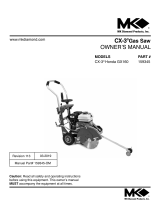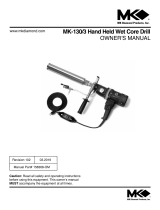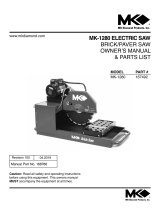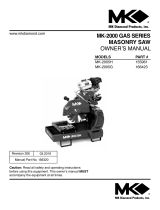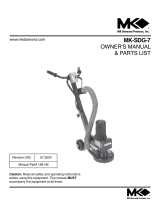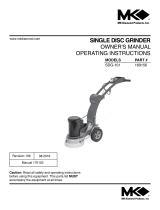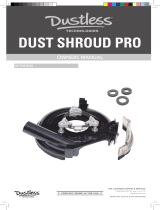
6
Consult the owner’s manual for recommended accessories. Using improper accessories
may increase the risk of personal or by-stander injury.
Serious injury could occur if a power tool is tipped, or if a cutting tool is unintentionally
contacted.
Before using a power tool, check for damaged part. A guard or any other part that is
damaged should be carefully checked to determine if would operate properly and perform
its intended function. Always check moving parts for proper alignment or binding. Check
for broken parts and mountings and all other conditions that may affect the operation of
the power tool. A guard, or any damaged part, should be properly repaired or replaced.
TURN POWER OFF - Do not leave a tool until it comes to a complete stop. Always
turn a power tool OFF when leaving the work area, or, when a cut is finished.
CALIFORNIA PROPOSITION 65 MESSAGE
USE RECOMMENDED ACCESSORIES
NEVER LEAVE A TOOL UNATTENDED
NEVER STAND ON THE TOOL
CHECK FOR DAMAGED PARTS
WARNING
Some dust created by power sanding, sawing, grinding, drilling, and other construction activities
contain chemicals known [to the State of California] to cause cancer, birth defects or other
reproductive harm. Some examples of these chemicals are:
• Lead, from lead-based paints
• Crystalline silica, from bricks and cement and other masonry products and
• Arsenic and chromium, from chemically treated lumber
For further information, consult the following sources:
http://www.osha.gov/dsg/topics/silicacrystalline/index.html
http://www.cdc.gov/niosh/consilic.html
http://oehha.ca.gov/prop65/law/P65law72003.html
http://www.dir.ca.gov/Title8/sub4.html
Your risk from these exposures varies depending on how often you do this type of work. To reduce
your exposure to these chemicals, work in a well-ventilated area, and work with approved safety
equipment, such as those dust masks that are specially designed to filter out microscopic particles.
MK-SDG SAFETY




















